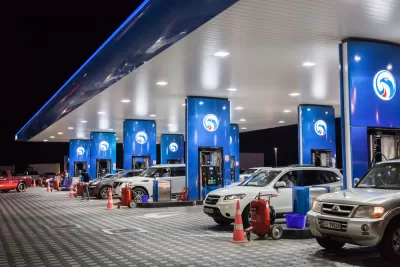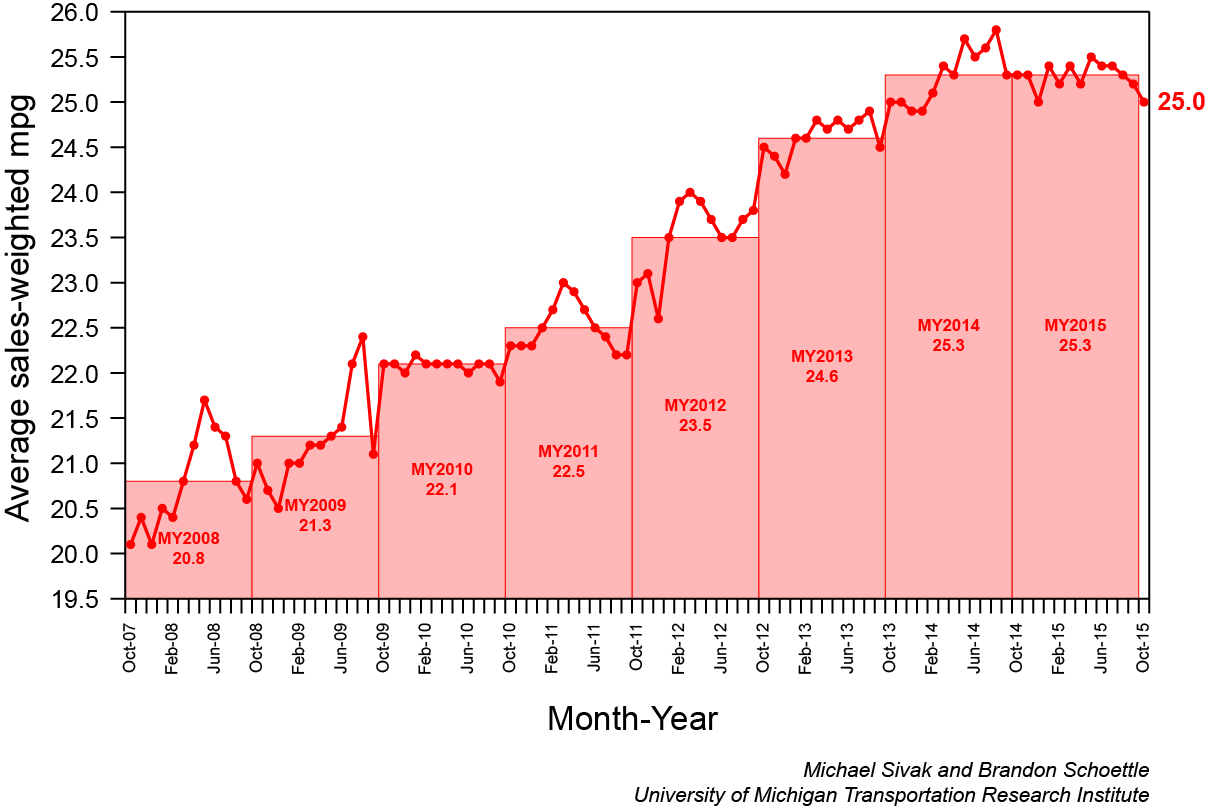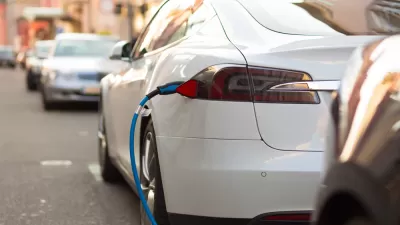New figures from the Federal Highway Administration show no abatement in increasing vehicle miles traveled (VMT). While low oil prices have been beneficial for the environment on the production end, it is wreaking havoc on the consumption side.

Low-priced oil played a major role in Royal Dutch Shell's decision in September to terminate Arctic oil exploration, their decision last month to end a huge oil sands development in Alberta, as well as being cited by President Obama on Friday as one reason to reject Transcanada Corp.'s application to build the 1,179-mile pipeline Keystone XL pipeline from Alberta to Nebraska:
"The pipeline would not lower gas prices for American consumers," stated the president. "The national average gas price is down about 77 cents over a year ago. It’s down a dollar over two years ago." [See related post].
However, low oil prices are producing opposing consequences on the consumption side by increasing demand for oil. Americans are driving more miles in less fuel-efficient vehicles and taking transit less often. AASHTO Journal reports on the latest federal mileage data, and they are cause to make OPEC cheer.
The Federal Highway Administration said its latest monthly "Traffic Volume Trends" report showed vehicle traffic on U.S. roadways reached 277.3 billion miles in August, a 2.3 percent gain from a year earlier and the most for any August on record.
That continues a trend of vehicles miles traveled growing on a year-over-year basis for 18 consecutive months and puts 2015 VMT on a pace to be the highest ever. The estimates include passenger vehicle, bus and truck travel.
While FHWA doesn't mention the correlation with low gas prices, Gas Buddy.com states it explicitly in their June 25 article: "A low fuel price environment clearly has jumpstarted new travel."
As for fuel efficiency, Dr. Michael Sivak, transportation researcher for University of Michigan Transportation Research Institute, has been reporting monthly on the fuel efficiency of vehicles purchased by consumers since 2007. Gas prices peaked in July 2014. The correlation is clear. From his Nov. 5 report:
The average fuel economy (window-sticker value) of new vehicles sold in the U.S. in October was 25.0 mpg—down 0.2mpg from September. This decline likely reflects the decreased price of gasoline in October, and the consequent increased sales of pickup trucks and SUVs. [Emphasis added].
Fuel economy is down 0.8 mpg from the peak reached in August 2014, but still up 4.9 mpg since October 2007 (the first month of our monitoring).
[Monthly updates found UMTRI Sustainable Worldwide Transportation]
The current oil market works against oil production that has high costs, but it is also increasing consumption. If "America is now a global leader when it comes to taking serious action to fight climate change," as President Obama proclaimed on Friday, he needs to recognize that notwithstanding increased fuel efficiency standards, low oil prices work against meeting his climate goals.
FULL STORY: FHWA Says Nation's Vehicle Mileage Continues Historic Climb for 18th Month

Manufactured Crisis: Losing the Nation’s Largest Source of Unsubsidized Affordable Housing
Manufactured housing communities have long been an affordable housing option for millions of people living in the U.S., but that affordability is disappearing rapidly. How did we get here?

Americans May Be Stuck — But Why?
Americans are moving a lot less than they once did, and that is a problem. While Yoni Applebaum, in his highly-publicized article Stuck, gets the reasons badly wrong, it's still important to ask: why are we moving so much less than before?

Using Old Oil and Gas Wells for Green Energy Storage
Penn State researchers have found that repurposing abandoned oil and gas wells for geothermal-assisted compressed-air energy storage can boost efficiency, reduce environmental risks, and support clean energy and job transitions.

Greening Oakland’s School Grounds
With help from community partners like the Trust for Public Land, Oakland Unified School District is turning barren, asphalt-covered schoolyards into vibrant, green spaces that support outdoor learning, play, and student well-being.

California Governor Suspends CEQA Reviews for Utilities in Fire Areas
Utility restoration efforts in areas affected by the January wildfires in Los Angeles will be exempt from environmental regulations to speed up the rebuilding of essential infrastructure.

Native American Communities Prepare to Lead on Environmental Stewardship
In the face of federal threats to public lands and conservation efforts, indigenous groups continue to model nature-centered conservation efforts.
Urban Design for Planners 1: Software Tools
This six-course series explores essential urban design concepts using open source software and equips planners with the tools they need to participate fully in the urban design process.
Planning for Universal Design
Learn the tools for implementing Universal Design in planning regulations.
Heyer Gruel & Associates PA
City of Moreno Valley
Institute for Housing and Urban Development Studies (IHS)
City of Grandview
Harvard GSD Executive Education
Salt Lake City
NYU Wagner Graduate School of Public Service
City of Cambridge, Maryland




























